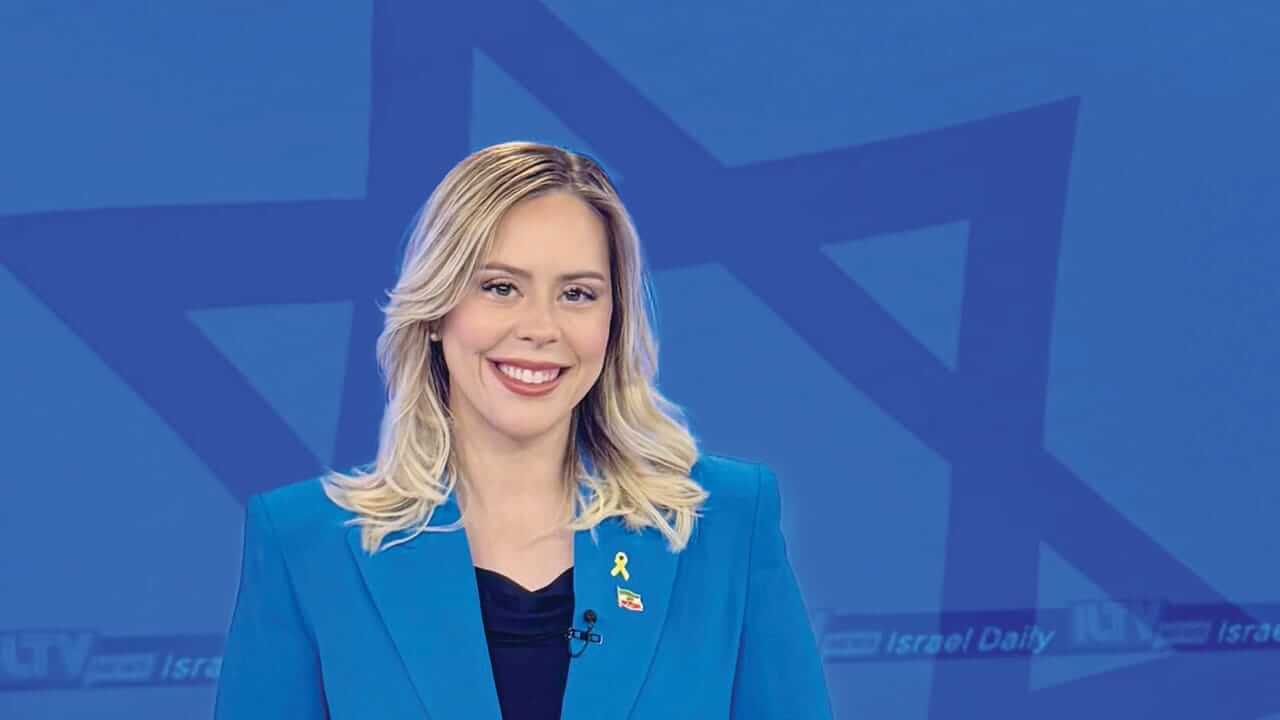Originally appeared in jpost.com, October 7, 2025
The Jerusalem Post’ sits down with Israel activists Emily Schrader and Blake Flayton, authors of 10 Things Every Jew Should Know Before They Go to College: An Illustrated Guide
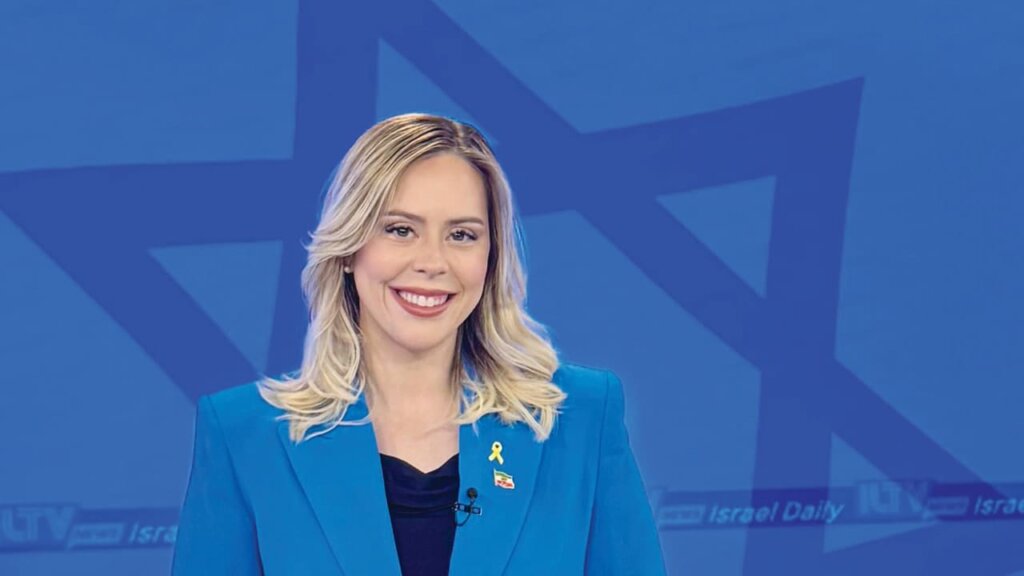
The book 10 Things Every Jew Should Know co-author Emily Schrader explains, grew partly out of her conversations with Kimberly Brooks, the editor and illustrator of the book. They first met at an event in Los Angeles where Schrader was giving a talk.
“The issue of antisemitism on college campuses has continued to grow over the years because the administrations haven’t dealt with it; and at other levels, this problem hasn’t really been dealt with. So that was my main inspiration,” she told The Jerusalem Post
Schrader is an American-Israeli journalist at Ynet and JNS, who freelances with ILTV. She made aliyah 10 years ago. She attended the University of Southern California (USC) and says, “I’ve wanted to write a bit more about the issues facing students since college.” She has been in the Jewish pro-Israel advocacy world since then, beginning with Stand with Us and being involved with several other organizations, such as AIPAC. It was a Birthright trip that ultimately inspired her to make aliyah, impelled by the obsessive anti-Israel movement on campus.
Schrader’s co-author, Blake Flayton, described himself as “a writer and social media editor,” until entering his IDF service. He just completed the first year of his master’s degree at Bar-Ilan University, studying religion and politics. “Once my army stint is finished, I will go back and finish that degree,” he said.
“I went to George Washington University with the intention of becoming a progressive activist, getting involved in all the liberal progressive politics that were happening on campus and in DC at the time. It was the dawn of the Trump administration, so that was really my passion. I wanted to fashion a career out of it.
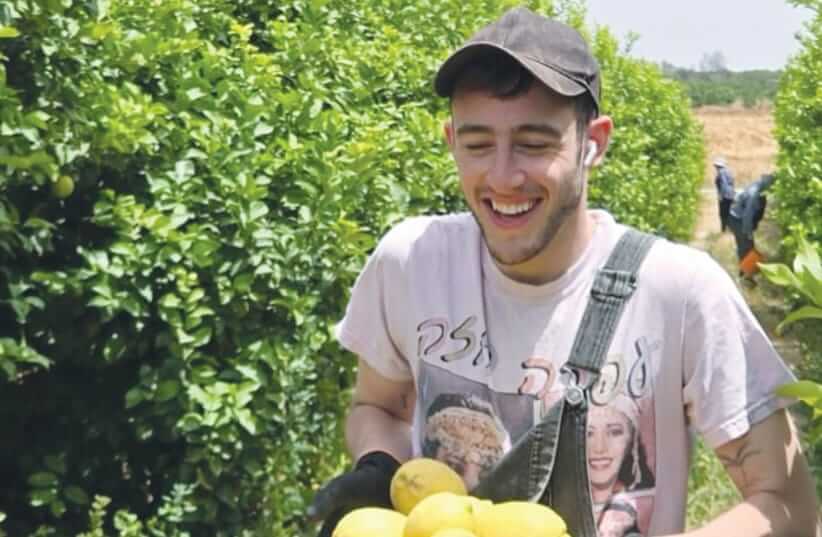
How did you two connect?
Schrader: I knew about Blake Flayton before we ever met and had followed his work. He was at university a few years after me and had quite a bout with antisemitism. He spoke about it very publicly, very bravely, and so I had a lot of respect for him as a professional and I thought he would be an important voice to bring on, to bring a different perspective because this an issue that affects all of the Jewish community and allies. I followed him on social media and saw several articles he had written, including one that got a lot of attention in The New York Times.
Tell us about yourself, Blake.
Flayton: I encountered antisemitism on campus, which at first I perceived as there being something wrong with me, that I had been brainwashed, that I had been led astray by my community into defending Israel, into defending Zionism, and I thought that I needed to unlearn that, take on a different opinion in order to fit in with my peers and teachers and classmates.
It really wasn’t until a number of incidents happened that could not in any way be classified or categorized as criticism of Israel and were just blatantly antisemitic, that I really had this awakening and started to call out this antisemitism on campus, where I saw it, and that led to, from my perspective, a lot of social marginalization and isolation.
Did you lose friends as a result of this awakening?
Flayton: I lost a lot of friends just for merely raising the issue in these progressive spaces.
And that experience turned into an article that I was lucky enough to get published in The New York Times in November 2019, about what I had witnessed as a progressive LGBT Jewish student who objected to labeling Israel as a white supremacist Nazi country and refused to do so.
That led me to continue writing about antisemitism in left-wing spaces, especially on the college campus. Two years later, I moved to Israel after graduating from college. I made aliyah, which is crazy because I had never been to Israel, and I wouldn’t call myself a Zionist. Judaism was important, but not that important; it never had a front seat in my life.
Did your college experience influence your decision to make aliyah?
I moved to Israel for a lot of reasons, and what I experienced on the college campus was definitely a big part of it. After October 7, there were days when I wondered what to do with myself. I needed a project in which to immerse myself, and that’s when Kimberly, the publisher and illustrator, got in touch with us and said, ‘Emily recommended your name for this book.’ They had written the outline for it, and then October 7 had put it in hyperdrive, like ‘We need this book now’ sort of thing, and I said, ‘Yes!’
We started working on it prior to October 7. It was not a new phenomenon. It’s just that the way things changed and the speed at which it changed after October 7 was very dramatic and very drastic, in particular for students on campus. So we knew pretty quickly after October 7 that we were going to have to push to move this forward a little bit more and also adjust based on the trends that we were seeing.
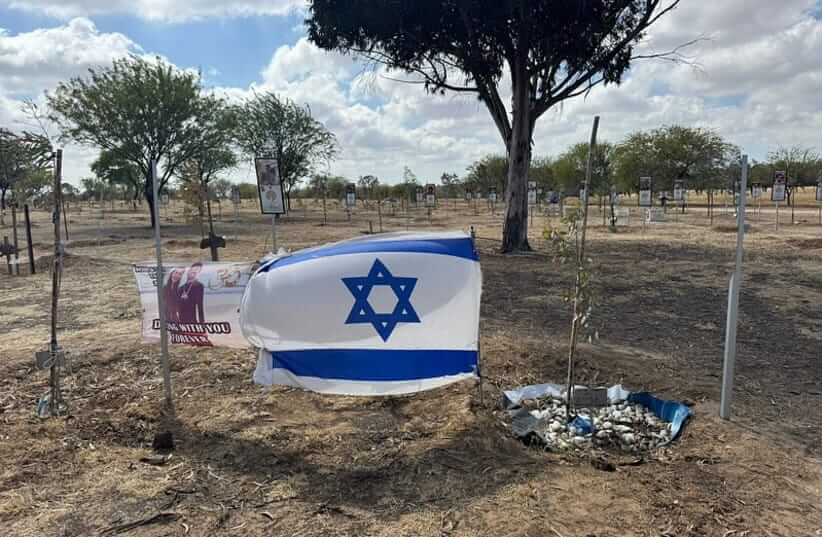
How did you react to October 7?
Flayton: When October 7 happened, there was a 12-hour window after the world became aware of the Hamas atrocities, when I and fellow Israelis and Jews and allies involved in this space began talking about antisemitism. I thought, ‘Okay, now it is going to change.’
And that was really important because it showed me – and Emily as well – that this isn’t about Israeli policy and this isn’t about the Israeli government and this isn’t about the politics and the reality on the ground in the Middle East.
What would you say it is about?
This is a deep-seated hatred of Zionism and a deep-seated hatred of Jewish self-determination. And we saw that because after October 7, hatred got louder. When some of us naively assumed that it would get softer or at least become more reasonable.
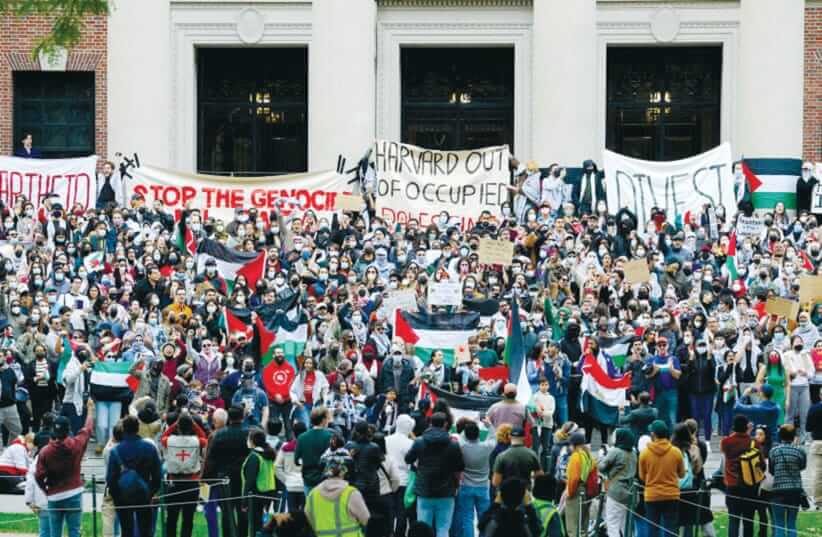
Is ‘10 Things’ just a book for students on college campuses?
Schrader: A lot of parents in the Jewish community and students have contacted me and are reading it or finding it very useful. There are some Jewish private school educators, particularly in Los Angeles, who have incorporated it into their curriculum. We wanted people to be able to understand at a basic level, with as little political bias as possible, to understand what people are talking about when they speak about Israel.
Usually, they don’t know themselves, so we want to make sure that everyone – especially students going to university – knows what they are talking about, at least at the basic level.
Then they can go into further research to decide where they stand on various issues themselves. But it’s important to have a general overview when people are going to talk to you as if they know things about this conflict, when often they have no clue.
What kind of feedback have you received?
Flayton: I have been in touch with many people – young and not young, Jewish and not Jewish – who have read the book. And even people who know quite a great deal about Israel and Israeli history and Jewish history have come up to me and said there are at least a few things in the book that they didn’t know and that were surprising and gratifying. The book really is for everybody: for Jews and non-Jews, people in college or starting college, and those who haven’t been in college in 40 or 50 years.
Schrader: The feedback I’ve gotten has been very, very positive, interestingly from Right to Left. I have people who are very much pro-settlements who really liked the book and appreciated the information that was brought forward; and I had people who are on the Left who said, ‘This was a very fair analysis of what’s going on in Israel.’
How did you manage that?
Schrader: That was intentional. That was our goal. Not to make it partisan one way or another, but about what one side thinks and what the other side thinks and why they might think that way.
Why is what happens on university campuses so important?
Flayton: We wanted to highlight how important the campus environment is because the people who are on campus are our future. They will be the ones who will be bringing these ideas into the mainstream, which, of course, regarding the anti-Israel movement, we have absolutely seen: people who marinate in anti-Israel and anti-Jewish ideology and ideas, and then go on to change the way politics and media, and even the law, work. And certainly pop culture. We are dealing with all of this right now, when the campus is sort of ground zero for that.
What is the main purpose of your book?
Schrader: Our purpose was to provide a resource for people; not a history book they have to read cover to cover that will take them half a year to get through. Something where people can flip to a page about a certain topic and understand the context of what’s actually being discussed – whether it’s in a classroom, or in your dorm with your friends, or with your parents at dinner. All of these topics have well-sourced information about these issues that can help people to answer questions and think critically.
Flayton: In this political environment, you hear jargon about the conflict like ‘occupation,’ ‘apartheid,’ ‘UNWRA,’ ‘genocide’ – the list can go on and on. You hear the ‘Palestinian Authority,’ you hear what’s going on in other Middle Eastern countries, which is, of course, a huge part of the book as well.
This book serves as a resource for anyone who wants to know more about any of those and related subjects. People can open the book, find the term in the index, and get to read a paragraph or two about it.
And that is desperately needed, not only in the young Jewish world but also for the wider community of young people – and people in general.
Do you think that things are beginning to improve on campuses?
Flayton: I think that some people have woken up and chosen sides and realized how crazy this whole movement is, and some people have gone the opposite way. It’s hard to tell right now because the dust hasn’t settled in regard to who really stands where.
I will say that, based on what I have seen and read and what I have experienced myself on campuses since October 7, when I have gone to speak, I don’t think what is happening on campuses represents what people really think. Right now, the majority of Americans support the State of Israel in some capacity. The majority of Jews do identify with Zionism, even if they have questions and even if they don’t happen to love the current government. And so, I think that what is represented on campus, as if Israel is this awful pariah state that everyone hates, is just not true.
And that was another reason that it was very important that our book be geared toward young Jews and college students because they need to understand that what they are hearing and seeing is not necessarily reality. What people are saying in the environment they are currently in on a campus is not the real world.
However, antisemitism is a rising problem. And what happens on campus has the potential to be the reality in the mainstream of society very soon. And so that is part of the reason we have to work with these communities and educate them to speak about these issues and write about them in books like this.
What can you say about the double standard for Jews and other groups?
Flayton: I am very sympathetic to the argument that the campus should be an absolutely free speech zone. And other students will need to deal with it; and if they are very offended by it, then they should come armed with their own arguments, and there should be a free marketplace of ideas. I think in a lot of ways that is the point of a campus, of the college experience, to get kids out of their comfort zone and allow them to experience how others see the world.
What upset me so much in college was the blatant double standard that our universities have been applying to the Jews. If a community on campus, a minority community, feels aggrieved by something, whether it be the Black community, the LGBT community, the disabled community, or the immigrant community, you name it, at GW, when there was a scandal involving these communities, the university would trip over itself to condemn the incident. It would reach out to students who were affected by it, to litigate what had happened, and make sure that all of the student body knew that they were on top of it and that free speech did not mean freedom to offend.
But when Jewish students feel offended, or aggrieved, or unsafe, as we saw in the encampment crisis, suddenly the university takes a rather conservative approach to the issue and says, ‘Well, this is just free speech’ as we saw in the hearings when those presidents were testifying: ‘You know, students can say whatever they want; unfortunately, strong political positions don’t go against our code of conduct.’
So, for example, when I published that piece in the Times in November 2019, you probably still could have convinced me that I was wrong. That I had overblown this issue, that I was being dramatic, that antisemitism really wasn’t that big of an issue on the Left but rather on the Right, and that this was simply criticism of Israel, that maybe I was too sheltered and too brainwashed by my community.
How did the university react to your piece in ‘The New York Times’?
Flayton: I accused George Washington University of having a problem with antisemitism – in the best newspaper in the world – and not a single professor reached out to me to have a conversation. There were no diversity, equity, and inclusion workshops. The only thing I experienced, in stark contrast to when other minorities and communities feel aggrieved, was social isolation, antagonism, and the overwhelming feeling that I was not wanted on the campus; that I was an enemy of the spaces I had once been part of.
I think that when you explain to young people how the double standard on campus works, the veil is lifted about this having anything to do with Israeli policy. It is about Jewish students, and Jews in general, being treated differently. We’ve seen that turn already in pop culture, media. politics, and social media. It is a huge part of that as well.
The past five to 10 years of American public life have been a reflection of what the educated elites have been propagating, at least when it comes to the Middle East.
What is your advice to college students?
Flayton: Jews have two options. They can choose to go to those universities that have been in the news, that have a problem, ready to fight, ready to stand up for the Jewish people, stand up for Israel. And, of course, this book is a great piece of ammunition to have in this fight. It is perfect for it. That’s why we wrote it.
Or they can choose to go to college in Israel, which is a huge recommendation in our book, by the way. Those who are able to should make aliyah. Because we are Zionists, and ultimately that is what Zionism means. These campuses don’t really deserve you anymore. And if the Jewish people no longer feel welcome or celebrated at these universities, then what is going to happen to them is what happens to every environment that no longer welcomes or accepts its Jews. It cannibalizes itself and falls from grace.
